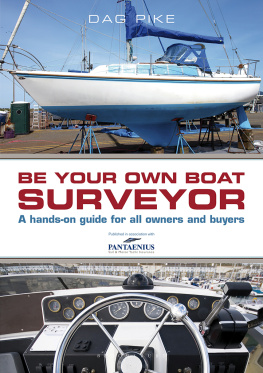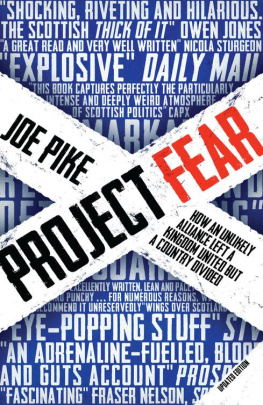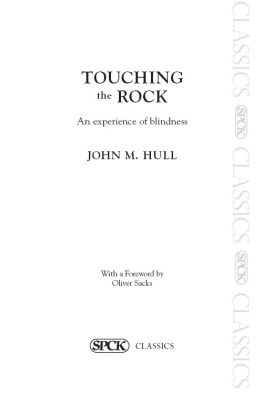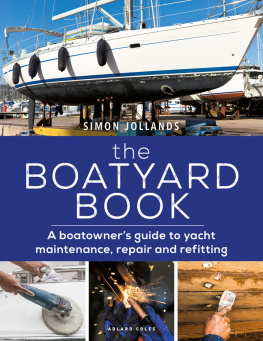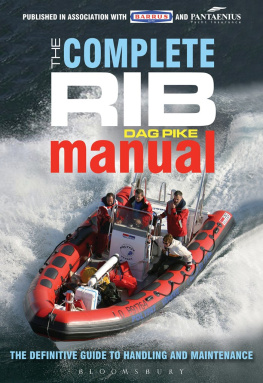
Published by Adlard Coles Nautical an imprint of Bloomsbury Publishing Plc 50 Bedford Square, London WC1B 3DP
www.adlardcoles.com
Bloomsbury is a trademark of Bloomsbury Publishing Plc
This electronic edition published in 2014 by Bloomsbury Publishing Plc
Copyright Dag Pike 2014
First published by Adlard Coles Nautical in 2014
ISBN 978-1-4729-0367-9
ePDF 978-1-4729-0369-3
ePub 978-1-4729-0368-6
All rights reserved You may not copy, distribute, transmit, reproduce or otherwise make available this publication (or any part of it) in any form, or by any means (including without limitation electronic, digital, optical, mechanical, photocopying, printing, recording or otherwise), without the prior written permission of the publisher. Any person who does any unauthorised act in relation to this publication may be liable to criminal prosecution and civil claims for damages.
The right of the author to be identified as the author of this work has been asserted by him in accordance with the Copyright, Designs and Patents Act, 1988.
Note: while all reasonable care has been taken in the publication of this book, the publisher takes no responsibility for the use of the methods or products described in the book.
To find out more about our authors and their books please visit www.bloomsbury.com where you will find extracts, author interviews and details of forthcoming events, and to be the first to hear about latest releases and special offers, sign up for our newsletters here.


CONTENTS

U NLESS YOURE IN the market for buying a second hand boat, its not usually good news when you have to call in a surveyor. They may be brought in to assess damage to your boat after an accident, or the insurance company might demand a survey when your boat reaches a certain age (usually around ten years) just to be sure about its condition. When you are buying second hand you certainly want a survey done before you commit. So the surveyors job, whether it is a purchase or insurance survey, is to use his specialist experience and skill to go through the boat with a fine-tooth comb, find any problems and propose solutions. For a damage survey the motivation is obvious but the surveyor will also assess the general condition in case that falls below what might be considered to be an insurable standard.
To a certain extent the surveyor is a bit like a detective. He will crawl round inside and outside the boat inspecting the fittings, fixtures and the hull itself to find the clues that will determine whether the boat is in sound condition or where any problems lie. It can be a difficult job at times because these clues are sometimes quite small and apparently insignificant, and it is only by putting them all together that the surveyor can assess the condition of the boat. He will use sight, feel, often smell and sometimes instruments to determine what may be wrong. It can be a challenging but fascinating job and, like so many jobs of this nature, its a constant learning curve, as construction methods and materials for boats develop.
When damage has occurred or when the insurance or finance company has demanded a survey, you will want to use a professional surveyor. You will probably also want to employ a surveyor to give you a report before you make a final decision on your next boat, but a good quality survey does not come cheap. If youre considering several boats before finally deciding on the one you want, you could run up a considerable bill. Owners will want to carry out their own survey to avoid such costs where possible.

Checking your own boat means delving into all those areas that you dont usually see.

The stern gear is one of the most critical areas to check because it is normally underwater and out of reach.
Carrying out a survey on a boat has always been something of a mysterious art and there is no doubt that skill and experience is required. However if you are prepared to get a boiler suit on and enter the normally unseen parts of a boat you can carry out a survey yourself. You may not have the professional experience but there are usually plenty of clues to help you pinpoint areas of concern. This book is aimed at the owner or potential owner who wants to be able to carry out a basic survey. It should help you find potential problems in your own boat and get them fixed before they become serious. And if youre buying, it should guide you through the survey process with enough information to decide whether to go ahead with the purchase and get the professional in (or walk on to the next boat on your list).

This deterioration may be only cosmetic but it is advisable to take a closer look.
The buyers survey
WHEN YOU ARE buying a second hand boat there is no reason why you should not do your own preliminary survey. You may not discover all the problems that a professional would but at least you should be able to spot areas of concern that may convince you to avoid a certain boat. By discovering problems at this early stage of the buying process you can rule out some of your potential purchases yourself, and save a great deal of money on professional surveys before you find a boat that looks to be in a suitable and reasonable condition and warrants a professional opinion (both to reassure yourself and possibly your finance company and insurer).
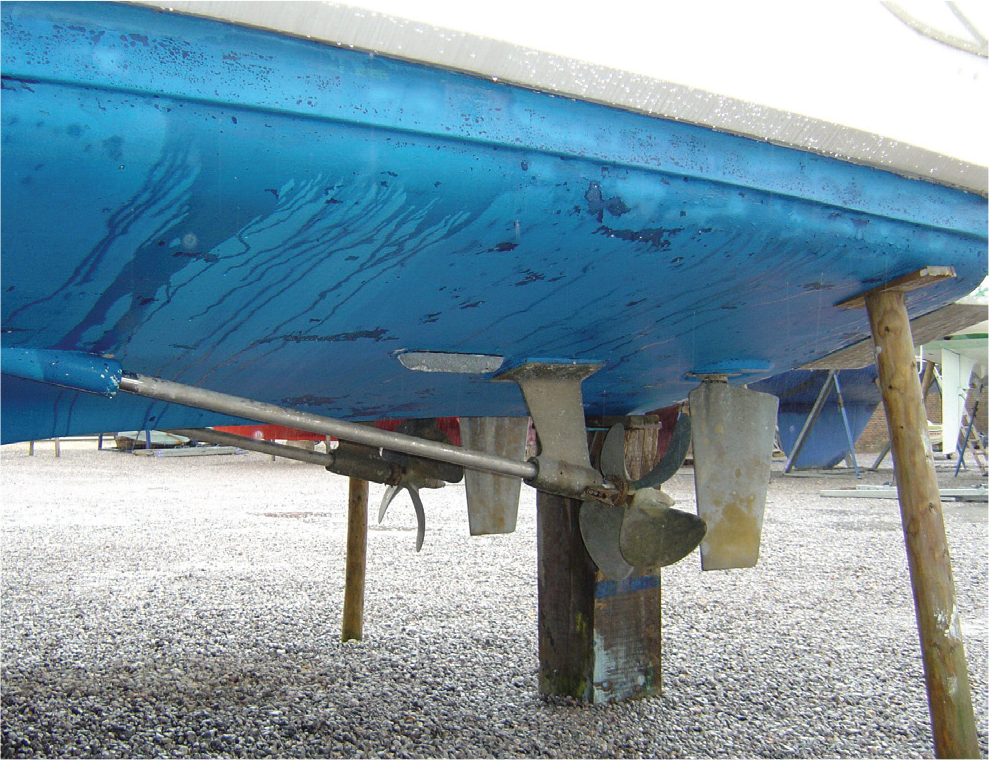
If you are thinking of buying a boat you should see it out of the water if possible.

There are many parts of the rigging that need checking in detail.
There will rarely be time for you to do a full survey when you are assessing potential purchases; the yacht broker or the owner isnt likely to want you to spend hours crawling around their boats. If you want to look at several boats before deciding, you need to be able to do a sort of preliminary survey, one that should throw up any major faults or at least give you an idea of how the boat has been maintained over the years. gives you the tools with which to do this. Professional surveyors may throw up their hands in horror at this approach but it is a pragmatic solution to what could be quite a difficult problem for potential purchasers. It is no substitute for a much more detailed survey, either by you or a professional, but it should enable you to decide whether to take a more detailed look at a boat or walk away.

